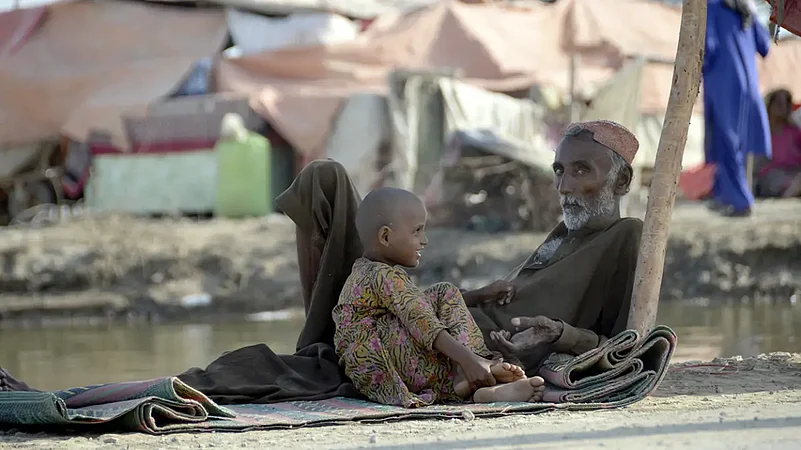Pakistan said Wednesday that the World Bank estimates this summer's record-breaking floods have caused $40 billion in damages in this impoverished South Asian nation. The figure is $10 billion more than an earlier estimate by the Pakistani government.
Cash-strapped Pakistan was already facing a serious financial crisis before the heavy monsoon rains hit in mid-June. The rains triggered unprecedented floods that at one point left a third of the country's territory submerged, forcing hundreds of thousands of people to move to safer places.
The new assessment came during a meeting in the capital, Islamabad, between Prime Minister Shahbaz Sharif and experts on climate change. There was no immediate word from the World Bank on the new estimate.
The flooding, which experts say is made worse by climate change, has killed 1,719 people and affected 33 million since mid-June. The waters have damaged or washed away 2 million homes.
Sharif's government last month offered an estimate of $30 billion from the floods but cautioned that the real figure may be far higher. A final report on the damages is yet to be finalized with the help of international aid agencies and lending institutions, including the World Bank.
The United Nations has revised its appeal for aid for Pakistan five-fold, to $816 million, from the initial $160 million, saying recent assessments about the damages caused by floods pointed to the urgent need for long-term help, lasting into next year.
A government statement following Wednesday's meeting between the premier and the newly formed Pakistan Climate Change Council quoted an often-repeated statement by Sharif that despite having less than 1% share in global carbon emissions, Pakistan is among 10 countries most affected by climate change.
Sharif also said that he hopes the U.N. climate conference in Egypt next month — for which the Pakistani prime minister was recently nominated as vice-chairman — will offer Pakistan “an opportunity to present its stance on the vulnerability of the developing world with regard to the effects of climate change."
According to government officials, more than half of the flood victims in Pakistan's worst-hit Sindh province have returned to their homes over the past three weeks after floodwaters receded there and elsewhere in the country, including Baluchistan, where the U.N. estimates that floods damaged 43% of crops.
The flood-related fatalities have included 345 women and 641 children. The U.N. says 7 million women and children require immediate access to food.
Pakistan wants the world community to scale up aid for flood survivors, now also threatened by waterborne diseases, malaria and dengue fever. Experts say people in flood-hit areas will face a harsh winter this year and that aid is urgently needed.

Pakistan: World Bank Estimates Floods Caused $40 Billion In Damages
Pakistan: World Bank Estimates Floods Caused $40 Billion In Damages
Published At:
- Previous Story
 Uber, Ola, Rapido Drivers to Go on Nationwide Strike on Feb 7: What Are Their Key Demands
Uber, Ola, Rapido Drivers to Go on Nationwide Strike on Feb 7: What Are Their Key Demands - Next Story
MOST POPULAR
WATCH
MORE FROM THE AUTHOR
×























